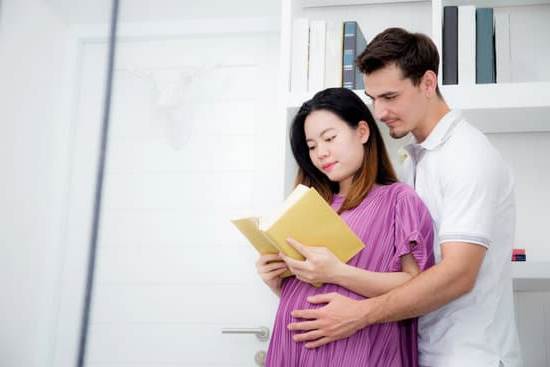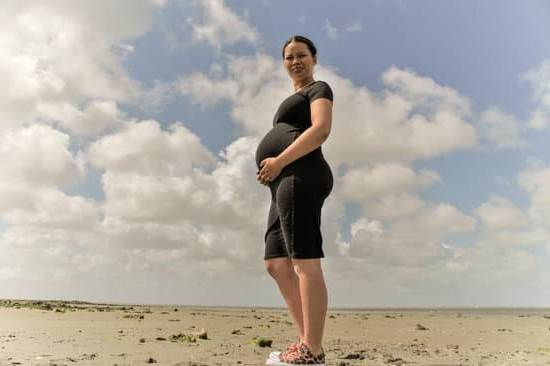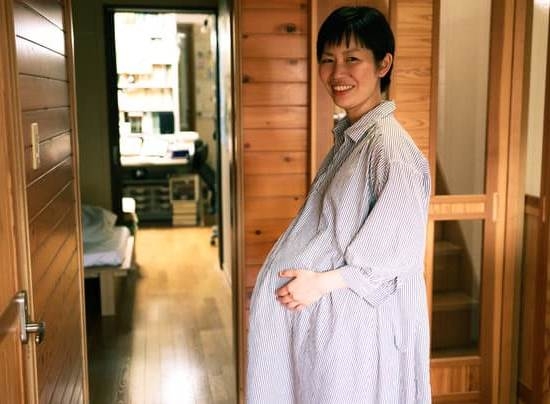Is lower back pain a sign of early pregnancy? This question often arises among women who are trying to conceive or suspect they may be pregnant. Understanding the potential connection between lower back pain and early pregnancy can help individuals navigate this crucial time with more awareness and insight. Recognizing the signs of early pregnancy is essential for proper care and planning, making it vital to explore the role of lower back pain in this context.
Lower back pain is a common symptom that many people experience for various reasons, but when coupled with other indicators, it could potentially signal early pregnancy. As one of the lesser-known signs of conception, lower back pain may not always be immediately associated with pregnancy. However, being aware of this possibility can provide valuable insights for those hoping to start a family.
This blog post will delve into the intricate relationship between lower back pain and early pregnancy. By understanding the causes of lower back pain, distinguishing between normal discomfort and possible pregnancy-related symptoms, and exploring other facets of early pregnancy signs, readers will gain a comprehensive perspective on this topic.
Whether you are actively trying to conceive or simply curious about potential signals from your body, uncovering the truth behind lower back pain in relation to early pregnancy can offer valuable knowledge for your reproductive health journey.
Understanding Lower Back Pain
Lower back pain is a common complaint that many individuals experience at some point in their lives. It can be caused by a variety of factors such as muscle strain, poor posture, or underlying medical conditions. However, for women who are trying to conceive, lower back pain can sometimes be an early sign of pregnancy. Understanding the difference between normal lower back pain and potential pregnancy-related symptoms is crucial in recognizing the signs of early pregnancy.
Causes of Lower Back Pain
Lower back pain can be triggered by several factors including muscle tension or strain from activities like lifting heavy objects or sudden movements. Poor posture, obesity, and sedentary lifestyle can also contribute to lower back discomfort. Additionally, conditions like arthritis, herniated discs, or sciatica may cause chronic lower back pain. It is important to consider these common causes when experiencing discomfort in the lower back.
Differentiating Pregnancy Symptoms
It is essential for women to become familiar with the early signs of pregnancy to distinguish them from general ailments. Lower back pain that is a result of pregnancy can occur due to hormonal changes and the shifting of ligaments as the body prepares for childbirth.
This type of back pain is often accompanied by other symptoms such as nausea, fatigue, breast tenderness, and frequent urination. Paying attention to these concurrent symptoms can help identify whether lower back pain could possibly be a sign of early pregnancy.
Early Signs of Pregnancy
Lower back pain during early pregnancy is a common concern for many women who are trying to conceive or suspect they may be pregnant. Understanding the early signs of pregnancy can help individuals recognize potential symptoms and take appropriate steps for their health and well-being. Here is a list of some common early signs of pregnancy to look out for:
- Missed period
- Morning sickness or nausea
- Fatigue
- Breast tenderness
- Frequent urination
One of the key questions that women often ask is, “Is lower back pain a sign of early pregnancy?” The answer is yes, lower back pain can indeed be a symptom of early pregnancy.
During the early stages of pregnancy, hormonal changes can cause relaxation of ligaments and joints in the pelvic area, leading to increased stress on the lower back. Additionally, as the uterus grows and shifts position, it can put pressure on the spine and surrounding muscles, resulting in discomfort and pain.
It is important to differentiate between normal lower back pain and potential signs of early pregnancy. While lower back pain can have various causes such as poor posture, muscle strain, or other medical conditions, if it is accompanied by other common symptoms like fatigue, breast tenderness, and nausea, it could indicate early pregnancy.
Tracking these symptoms and paying attention to your body’s signals can help you determine whether you may be pregnant and take appropriate actions such as taking a pregnancy test or consulting with a healthcare provider.
Lower Back Pain as a Symptom of Early Pregnancy
Lower back pain is a common discomfort experienced by many individuals, but it can also serve as a potential indicator of early pregnancy in women. Understanding the nuances of lower back pain and its association with pregnancy can be crucial for those trying to conceive or who suspect they may be pregnant.
While lower back pain on its own is not a definitive sign of pregnancy, it is one of the possible symptoms that women may experience in the early stages.
During pregnancy, hormonal changes, such as increased levels of relaxin, can contribute to the loosening of ligaments in the pelvic area, leading to strain on the lower back. Additionally, as the uterus expands and shifts position to accommodate the growing fetus, it can put pressure on surrounding muscles and nerves, causing discomfort in the lower back. These physiological changes can result in unique lower back pain that is distinct from typical backaches unrelated to pregnancy.
It is important for women to pay attention to any unusual symptoms they may experience, including lower back pain, especially when accompanied by other early signs of pregnancy such as nausea, fatigue, breast tenderness, and missed periods. Tracking these symptoms and noting any patterns can help individuals recognize potential signs of pregnancy early on.
If lower back pain persists or becomes severe along with other symptoms mentioned earlier, it may be advisable to consult a healthcare provider for further evaluation and guidance.
Other Possible Causes of Lower Back Pain
Various Causes of Lower Back Pain
Lower back pain can be attributed to a variety of factors beyond early pregnancy. Some common causes include muscle strains or sprains, poor posture, lifting heavy objects incorrectly, and even stress. Additionally, certain medical conditions like arthritis, herniated discs, or sciatica can also manifest as lower back pain. It is important for women experiencing this discomfort to consider all potential causes before jumping to conclusions about pregnancy.
Seeking Medical Advice
If lower back pain persists or is accompanied by other concerning symptoms such as fever, weight loss, or numbness in the legs, it is essential to consult a healthcare professional. A doctor can provide a proper diagnosis and recommend appropriate treatment options based on the underlying cause of the pain. Ignoring persistent lower back pain could delay necessary treatment for other health issues that may not be related to pregnancy.
Pregnancy Test and Confirmation
While lower back pain can sometimes indicate early pregnancy, it is not a definitive sign on its own. To accurately confirm pregnancy, taking a home pregnancy test or visiting a healthcare provider for a blood test is recommended.
In cases where lower back pain persists and pregnancy is ruled out, further investigation may be needed to determine the root cause of the discomfort. Understanding that there are various reasons for lower back pain will allow individuals to make informed decisions regarding their health and well-being.
Recognizing the Combination of Symptoms
Lower back pain is a common symptom experienced by many individuals, but is lower back pain a sign of early pregnancy? The answer is yes, lower back pain can indeed be a sign of early pregnancy for some women. During early pregnancy, hormonal changes can cause relaxation of the ligaments and muscles in the pelvic area, leading to discomfort and sometimes pain in the lower back. This can be one of the earliest indicators that a woman may be pregnant.
In addition to lower back pain, there are several other common signs of early pregnancy that women may experience. These include nausea or morning sickness, breast tenderness, fatigue, frequent urination, and food aversions or cravings. When these symptoms are experienced in combination with lower back pain, it may increase the likelihood of being pregnant. It is essential for women who are trying to conceive to track these symptoms carefully to recognize any patterns that could indicate pregnancy.
Recognizing the combination of symptoms is crucial when determining whether lower back pain could be a sign of early pregnancy. If a woman experiences persistent lower back pain along with other symptoms such as missed periods and nausea, it might be time to consider taking a pregnancy test. Understanding how different signs and symptoms work together can help women identify potential pregnancies early on and seek appropriate medical care and guidance promptly.
| Information | Data |
|---|---|
| Is Lower Back Pain a Sign of Early Pregnancy? | Yes, hormonal changes during early pregnancy can lead to lower back pain. |
| Combination of Symptoms | Tracking various symptoms along with lower back pain can aid in identifying potential pregnancies. |
| Early Recognition | Understanding how symptoms work together helps in timely detection of pregnancy. |
Tips for Managing Lower Back Pain During Early Pregnancy
During early pregnancy, women may experience lower back pain as one of the symptoms. It is important to understand how to manage this discomfort effectively to ensure a smoother pregnancy journey. Here are some tips for managing lower back pain during early pregnancy:
- Recommended exercises: Gentle exercises can help strengthen the back muscles and alleviate lower back pain. Some beneficial exercises include prenatal yoga, pelvic tilts, and stretches specifically targeting the lower back.
- Proper posture: Maintaining good posture can help reduce strain on the lower back. Make sure to sit and stand up straight, avoid slouching, and use supportive pillows when sitting or sleeping.
- Heat therapy: Applying a warm compress or taking a warm bath can provide relief from lower back pain during early pregnancy. Heat helps relax muscles and improve blood circulation in the affected area.
In addition to these tips, it is essential for pregnant women experiencing lower back pain to consult with their healthcare provider for personalized advice and guidance. Every woman’s body is different, so what works for one person may not necessarily work for another. By proactively managing lower back pain during early pregnancy, women can focus on enjoying this special time in their lives.
Remember that while lower back pain can be a common symptom of early pregnancy, it is always important to listen to your body and seek medical advice if the discomfort becomes severe or persistent. Prioritizing self-care and implementing these tips can help alleviate lower back pain and enhance overall well-being during this exciting phase of life.
When to Take a Pregnancy Test
Lower back pain is a common issue that many women face, but can it also be a sign of early pregnancy? The answer is yes, lower back pain can indeed be one of the early symptoms of pregnancy. During early pregnancy, hormonal changes can impact the ligaments and muscles in the lower back, leading to discomfort and pain. This type of back pain is typically more dull and achy compared to sharp or stabbing pain often associated with other causes.
If you are experiencing lower back pain along with other potential signs of early pregnancy like nausea, fatigue, or breast tenderness, it may be a good idea to consider taking a pregnancy test. While lower back pain alone may not confirm a pregnancy, when combined with other symptoms, it could indicate that you are pregnant.
It’s important to remember that every woman’s body is different, so not all women will experience the same symptoms or at the same intensity.
Taking a home pregnancy test can provide you with some initial information, but for a conclusive answer, it is recommended to follow up with a healthcare provider for confirmation. If you suspect you might be pregnant based on your symptoms like lower back pain and others, consulting with a medical professional is crucial for proper prenatal care if you are indeed expecting.
Being proactive about your health during this crucial time is essential for both you and your baby’s well-being.
Conclusion
In conclusion, lower back pain can indeed be a sign of early pregnancy for some women. While it is not a definitive indicator on its own, when combined with other common early pregnancy symptoms such as fatigue, nausea, and breast tenderness, it may suggest that conception has occurred. Understanding the differences between normal lower back pain and this potential symptom of pregnancy can be crucial for women who are actively trying to conceive or suspect they may be pregnant.
It is important for women to track their symptoms closely and pay attention to any changes in their body, especially if they are actively trying to conceive. Lower back pain during early pregnancy is often caused by hormonal changes and the stretching of ligaments in preparation for the growth of the uterus. By recognizing this as a possible sign of pregnancy, women can take appropriate steps towards prenatal care and planning for the future.
Overall, listening to one’s body and seeking medical advice when necessary is key in navigating the early signs of pregnancy. Whether experiencing lower back pain or other symptoms, women should trust their instincts and reach out to healthcare professionals for guidance. By staying informed and proactive about their health during this critical time, women can better prepare themselves for the journey ahead.
Frequently Asked Questions
What Do Early Pregnancy Back Pains Feel Like?
Early pregnancy back pains can feel like dull, achy discomfort in the lower back area. Some women may also experience sharp pains or a feeling of heaviness in their back during early pregnancy.
Can Lower Back Pain Be a Sign of Implantation?
Lower back pain can be a sign of implantation, but it is not always a definitive symptom. Some women may experience lower back pain as the fertilized egg implants itself into the uterus, causing mild discomfort in the lower back region.
Is Lower Back Pain Normal at 5 Weeks?
Lower back pain at 5 weeks of pregnancy is considered normal for some women. The body undergoes hormonal and physical changes during early pregnancy, which can lead to lower back pain as the ligaments and muscles stretch to accommodate the growing uterus.
However, if the pain becomes severe or is accompanied by other worrying symptoms, it’s important to consult a healthcare provider for further evaluation.

Welcome to my fertility blog. This is a space where I will be sharing my experiences as I navigate through the world of fertility treatments, as well as provide information and resources about fertility and pregnancy.





